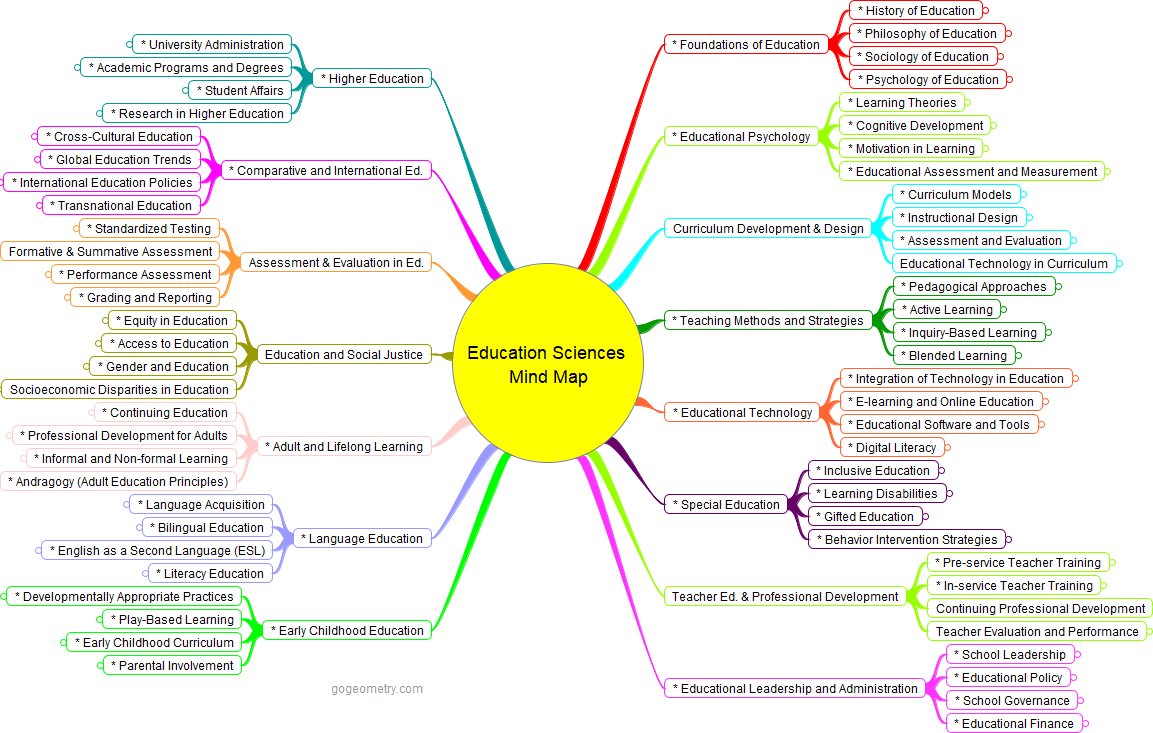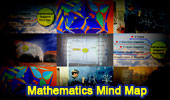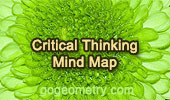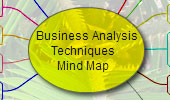Education Sciences Mind Map

Links to Principal Topics of Education Sciences Mind Map
| Principal Topics |
|---|
| Foundations of Education |
| Educational Psychology |
| Curriculum Development and Design |
| Teaching Methods and Strategies |
| Educational Technology |
| Special Education |
| Teacher Education and Professional Development |
| Educational Leadership and Administration |
| Higher Education |
| Comparative and International Education |
| Assessment and Evaluation in Education |
| Education and Social Justice |
| Adult and Lifelong Learning |
| Language Education |
| Early Childhood Education |
Education Sciences Visualized: A Comprehensive Mind Map
A mind map of education sciences provides a visually organized representation of complex concepts, promoting conceptual clarity and memory enhancement. It offers a creative exploration of relationships between topics, making it an effective study tool for students. Additionally, mind maps support collaboration and communication in group settings, aiding in holistic understanding of the field. They are efficient tools for planning educational initiatives, contributing to time management and adaptability as information evolves. In summary, mind maps in education sciences facilitate effective organization, comprehension, creativity, and communication for individuals in the field.
Graphic Organizers
Graphic organizers and mind maps serve as visual tools for representing information, concepts, or ideas. While graphic organizers usually follow a hierarchical structure with main ideas branching into supporting details, mind maps offer a more free-form approach, allowing users to connect ideas in a way that makes sense to them. These tools are valuable for organizing and structuring information, promoting learning and retention, and fostering creativity and problem-solving skills.


